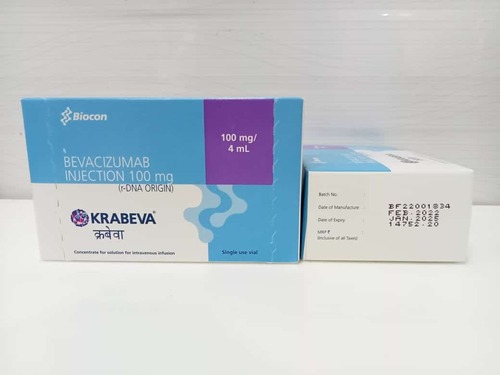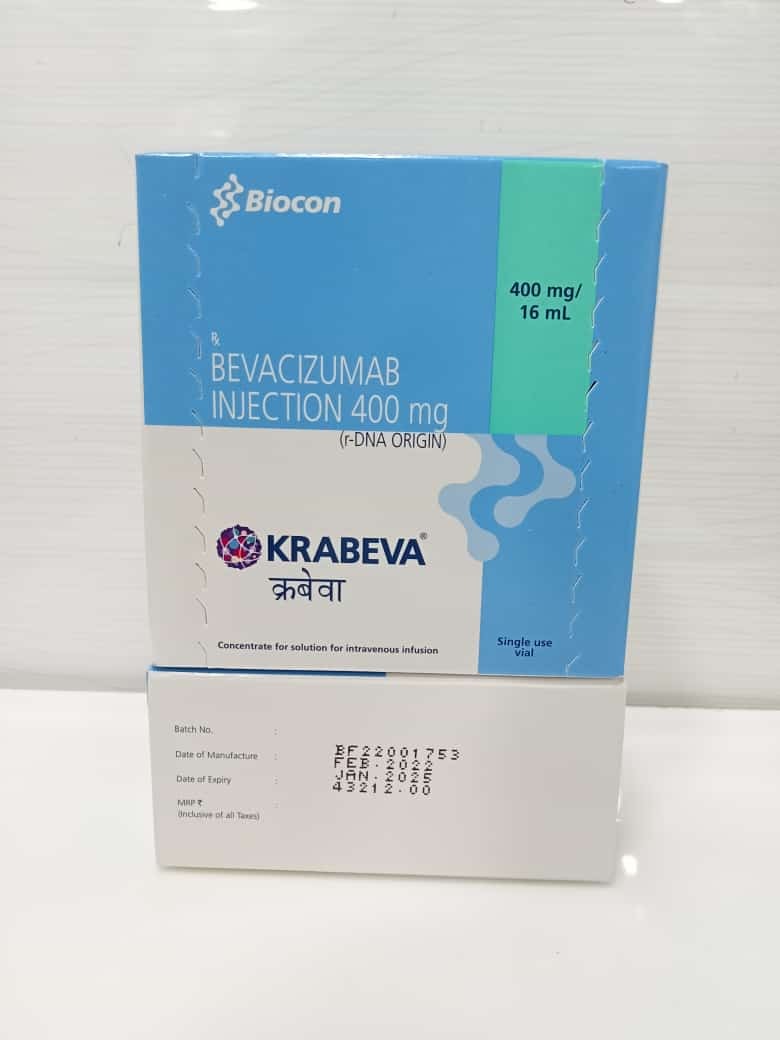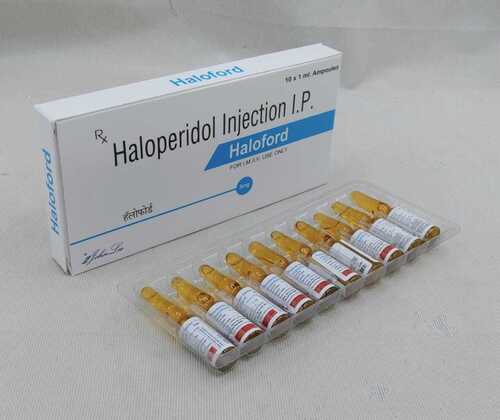

Bevacizumab Injection
43212.00 INR/Piece
Product Details:
- Drug Type Injection
- Physical Form Liquid
- Dosage Guidelines As per doctor
- Quantity 1000 Pieces
- Storage Instructions Dry & Cool place
- Click to view more
X
Bevacizumab Injection Price and Quantity
- 43212.00 INR/Piece
- 14752.00 - 43212.00 INR/Piece
- 10000 Piece
Bevacizumab Injection Specification
- Dry & Cool place
- As per doctor
- Injection
- 1000 Pieces
- Liquid
Bevacizumab Injection Trade Information
- MUMBAI
- Cash on Delivery (COD), Western Union, Letter of Credit (L/C), Cash Advance (CA)
- 1000 Piece Per Day
- 01 Week
- Yes
- Free samples available with shipping and taxes paid by the buyer
- 1X100MG/4ML 1X400MG/16ML
- Central America, Australia, South America, Western Europe, Middle East, Eastern Europe, Asia, North America, Africa
- All India
Product Description
Bevacizumab is a medication that is commonly administered through injection. It is a monoclonal antibody that inhibits the growth of new blood vessels, a process called angiogenesis. Bevacizumab is often used in the treatment of various types of cancer, as well as certain eye conditions.
Here are some key points about Bevacizumab:
1. Cancer Treatment:
Bevacizumab is frequently used in the treatment of certain types of cancer, including colorectal cancer, lung cancer, breast cancer, kidney cancer, and glioblastoma multiforme (a type of brain tumor).
2. Mechanism of Action:
It works by blocking vascular endothelial growth factor (VEGF), a substance that helps tumors form new blood vessels. By inhibiting angiogenesis, Bevacizumab can limit the blood supply to cancer cells, slowing down their growth and potentially shrinking tumors.
3. Administration:
Bevacizumab is typically administered intravenously (IV) by a healthcare professional. The frequency and dosage depend on the specific cancer being treated and the overall treatment plan developed by the medical team.
4. Side Effects:
Common side effects may include high blood pressure, fatigue, headache, and increased risk of bleeding. Serious side effects can occur, such as gastrointestinal perforations, wound healing complications, and blood clot formation. Patients receiving Bevacizumab are carefully monitored for these potential complications.
5. Eye Conditions:
In addition to cancer treatment, Bevacizumab is sometimes used to treat certain eye conditions, such as age-related macular degeneration (AMD) and diabetic retinopathy. In these cases, the medication is injected directly into the eye.
6. Availability:
Bevacizumab is available under various brand names, and biosimilar versions may also be available. It's important to follow the prescribed brand and dosage as directed by the healthcare provider.
7. Precautions:
Before starting Bevacizumab, healthcare providers assess the patient's medical history, overall health, and potential contraindications. It is not suitable for everyone, and the decision to use Bevacizumab is made on a case-by-case basis.
Tell us about your requirement

Price:
Quantity
Select Unit
- 50
- 100
- 200
- 250
- 500
- 1000+
Additional detail
Mobile number
Email
 English
English Spanish
Spanish French
French German
German Italian
Italian Chinese (Simplified)
Chinese (Simplified) Japanese
Japanese Korean
Korean Arabic
Arabic Portuguese
Portuguese






 Call Me Free
Call Me Free
